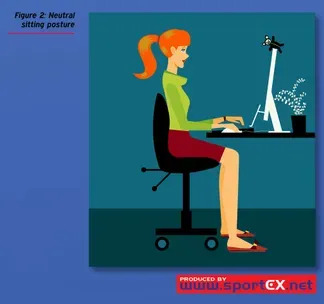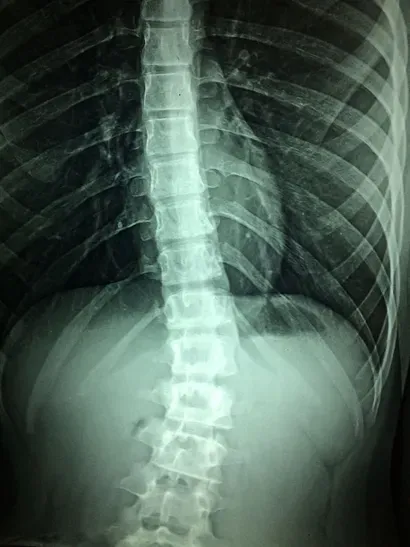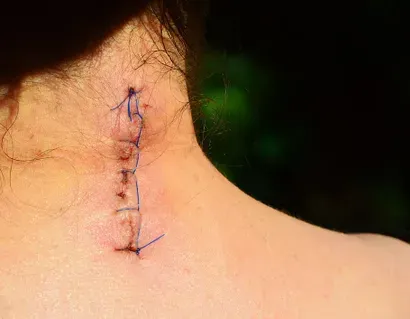How Long Does It Take for a Herniated Disc to Heal? A Comprehensive Guide
Suppose you're one of the millions of people who suffer from a herniated disc. You may be wondering how long it takes for this condition to heal.
In this comprehensive guide. We'll discuss how long a herniated disc can heal without surgery.
The best treatments for herniated discs and sciatica. The symptoms of a herniated disc in the neck, and herniated disc surgery recovery time.
Causes of Herniated Discs
One common cause of herniated discs is age-related degeneration.
As we age, our spinal discs lose water content and become less supple, making them more prone to injuries.
Repetitive strain on the spine from certain activities. Such as heavy lifting, twisting motions.
Or sports that involve sudden jerking movements can also lead to a herniated disc.
Certain medical conditions, such as arthritis, osteoporosis. Or obesity, can predispose you to developing a herniated disc.
Finally, traumatic accidents such as falls or car accidents can cause significant damage. To the spinal column, leading to a herniated disc.
Understanding these underlying causes can help you take preventive measures early on. And reduce your risk of developing a herniated disc in the future.
Diagnosis and Symptoms
If you have any of the following symptoms, please get medical attention. Pain in the affected area, numbness, or tingling in the arms or legs.
Weakness in the muscles, and difficulty with coordination. If a herniated disc is found, it may need surgery to be removed.
Factors Influencing Recovery
The severity of the herniated disk injury affects the speed at which it will heal.
If it's in the lower back, sciatica and leg pain may be experienced, which lengthens the healing time.
Additionally, lifestyle choices such as smoking can impact recovery speed.
How Long for Herniated Disc to Heal Without Surgery:
A herniated disc is a large, protrusion that has become trapped in the vertebral body.
This can happen when the disc becomes compressed by the vertebrae below it.
If the herniated disc is located near the spine's lower back, it might be easier to see if it's inflamed or infected.
If it's in a more remote part of the spine, it might not be visible at all.
Treatment for Herniated Disc and Sciatica:
If the person doesn't find relief from conservative treatments such as physical therapy. Medication, exercise, and other treatments may be necessary.
For instance, epidural injections can be effective in reducing inflammation. And relieving pain caused by herniated discs.
Moreover, chiropractic care and acupuncture can also be effective alternative treatments.
Herniated Disc in Neck Symptoms:
If you experience pain in your neck, arm, or spine, it's important to see a doctor as soon as possible.
A proper diagnosis can help you get the treatment you need.
Herniated Disc Surgery Recovery Time:
Depending on the type of surgery performed, patients may have a shorter recovery time. Than those who undergo traditional open surgeries.
Generally, patients should expect to take some time off work. And refrain from engaging in strenuous activities for several weeks.
Related Subtopics:
There are several related topics that may be explored. Besides the main topics discussed above.
For example, exercises that can help ease pain caused by herniated discs.
How to prevent herniated discs, and alternative treatments such as massage therapy.
The importance of maintaining good posture, and coping with chronic pain.
Conclusion:
If you have a herniated disc, it can be frustrating and painful. But, it's important to remember that recovery is possible.
By seeking proper medical treatment. And following a personalized treatment plan, you can enjoy a full recovery.
Don't hesitate to speak with your doctor if you're experiencing any of the abovementioned symptoms.
See Understanding The Root Causes Of Sciatica Pain
Frequently Asked Questions
Q: What is a herniated disc?
A: A herniated disc is a condition in which the soft material inside a spinal disc pushes out. Through a tear in the disc's outer layer.
This can cause pain, numbness, and weakness in the back, legs, or arms. Depending on the location of the herniated disc.
Q: How long does it take for a herniated disc to heal?
A: The healing time for a herniated disc varies from person to person. And depends on several factors, such as the severity of the herniation. The location of the herniation, and the health of the patient.
On average, it takes about four to six weeks for a herniated disc to heal without surgery. Yet, more severe cases may need longer healing times.
Q: What are some non-surgical treatments for herniated discs?
A: There are various treatments that can be used for herniated discs. Including rest, physical therapy, medication, and exercise.
It is important to work with a healthcare professional. To determine the best treatment plan for your specific situation.
Q: Can herniated discs heal on their own?
A: Yes, there are ways to heal herniated discs on their own. But, it is important to follow a personalized treatment plan.
And avoid activities that exacerbate the pain. Rest and conservative treatments are often recommended before considering surgery.
Q: When is surgery necessary for a herniated disc?
A: Surgery for a herniated disc is considered. When other non-surgical treatments have not provided relief.
or when the herniation is severe and causing significant pain or disability.
The decision to undergo surgery. Should be made in consultation with a healthcare professional.
Q: What is the recovery time for herniated disc surgery?
A: The recovery time for herniated disc surgery varies. Depending on the type of surgery performed.
Minimally invasive surgeries may have shorter recovery times than traditional open surgeries.
Generally, patients should expect to take some time off work. And refrain from engaging in strenuous activities for several weeks.
Q: How can I prevent a herniated disc?
A: There are several things you can do to reduce your risk of developing a herniated disc.
Such as maintaining good posture, using proper lifting techniques. Exercising regularly, and avoiding smoking.
It's also important to seek prompt medical attention if you experience any back or neck pain.
Q: Can a herniated disc cause permanent damage?
A: If a herniated disc is left untreated or if the herniation is severe, it can cause permanent nerve damage.




